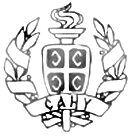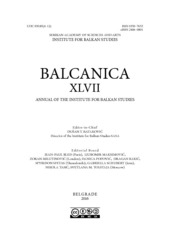Prikaz osnovnih podataka o dokumentu
Nikola Pašić and the Foreign Policy of the Kingdom of Serbs, Croats and Slovenes, 1919-1926
| dc.creator | Bakić, Dragan | |
| dc.date.accessioned | 2019-03-30T10:05:55Z | |
| dc.date.available | 2019-03-30T10:05:55Z | |
| dc.date.issued | 2016 | |
| dc.identifier.issn | 0350-7653 | |
| dc.identifier.uri | https://dais.sanu.ac.rs/123456789/5261 | |
| dc.description.abstract | This paper looks at Nikola Pašić’s views of and contribution to the foreign policy of the Kingdom of Serbs, Croats and Slovenes (SCS/Yugoslavia after1929) during the latest phase of his political career, a subject that has been neglected by historians. His activities in this field are divided into two periods – during the Paris Peace Conference where he was the head of the SCS Kingdom’s delegation and after 1921 when he became Prime Minister, who also served as his own Foreign Minister. During the peace conference, Pašić held strong views on all the major problems that faced his delegation, particularly the troubled delimitation with Italy in the Adriatic. In early 1920, he alone favoured the acceptance of the so-called Lloyd George-Clemenceau ultimatum, believing that the time was working against the SCS Kingdom. The Rapallo Treaty with Italy late that year proved him right. Upon taking the reins of government, Pašić was energetic in opposing the two restoration attempts of Karl Habsburg in Hungary and persistent in trying to obtain northern parts of the still unsettled Albania. In time, his hold on foreign policy was weakening, as King Alexander asserted his influence, especially through the agency of Momčilo Ninčić, Foreign Minister after January 1922. Pašić was tougher that King and Ninčić in the negotiations with Mussolini for the final settlement of the status of the Adriatic town of Fiume and the parallel conclusion of the 27 January 1924 friendship treaty (the Pact of Rome). Since domestic politics absorbed much of his time and energy, the old Prime Minister was later even less visible in foreign policy. He was forced to resign in April 1926 on account of his son’s corruption scandal shortly before the final break-down of relations with Italy. | en |
| dc.language.iso | en | sr |
| dc.publisher | Belgrade : Institute for Balkan Studies, Serbian Academy of Sciences and Arts | sr |
| dc.relation | info:eu-repo/grantAgreement/MESTD/Basic Research (BR or ON)/177011/RS// | sr |
| dc.rights | openAccess | sr |
| dc.rights.uri | https://creativecommons.org/licenses/by-nc-nd/4.0/ | |
| dc.source | Balcanica | sr |
| dc.subject | Nikola Pašić | sr |
| dc.subject | Kingdom of Serbs, Croats and Slovenes | en |
| dc.subject | Yugoslav state | sr |
| dc.subject | foreign policy | sr |
| dc.subject | peace conference | sr |
| dc.subject | Pact of Rome | sr |
| dc.title | Nikola Pašić and the Foreign Policy of the Kingdom of Serbs, Croats and Slovenes, 1919-1926 | en |
| dc.type | article | sr |
| dc.rights.license | BY-NC-ND | sr |
| dcterms.abstract | Бакић, Драган; | |
| dc.citation.spage | 285 | |
| dc.citation.epage | 316 | |
| dc.citation.issue | 47 | |
| dc.identifier.wos | 000395301200015 | |
| dc.identifier.doi | 10.2298/BALC1647285B | |
| dc.type.version | publishedVersion | sr |
| dc.identifier.fulltext | https://dais.sanu.ac.rs/bitstream/id/16607/bitstream_16607.pdf | |
| dc.identifier.rcub | https://hdl.handle.net/21.15107/rcub_dais_5261 |

